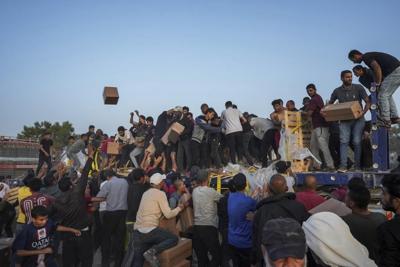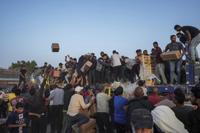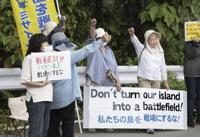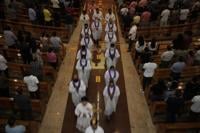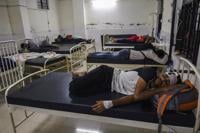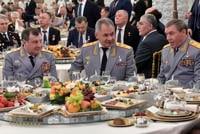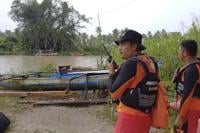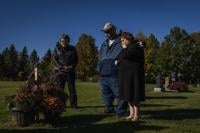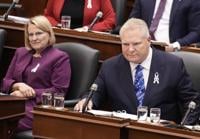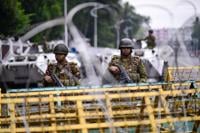WASHINGTON (AP) — The director of the U.N. World Food Program said Sunday the program has “paused” its distribution of humanitarian aid from an American-built pier off Gaza, saying she was “concerned about the safety of our people" after what had been one of the deadliest days of the war there.
Saturday saw both an Israeli military assault that but left 274 Palestinians and one Israeli commando dead, and, Cindy McCain said, two of WFP's warehouses in Gaza had been “rocketed” and a staffer injured.
Sunday's U.N. announcement of the pause appears the latest setback for the U.S. sea route, set up to try to bring more aid .
The U.S. Agency for International Development described the pause as a step to allow for a security review by the humanitarian community in Gaza. USAID works with the World Food Program and their humanitarian partners in Gaza to distribute food and other aid coming from the U.S.-operated pier.
Completed in mid-May, the U.S. pier was operational for only about a week before being knocked offline by storm damage for two weeks. After repairs, it returned to operation again Saturday, bringing in 1.1 million pounds (492 metric tons) of food and other aid, before McCain said her agency was pausing its humanitarian work there.
The U.N. agency gave no further details, including how long the pause would last. WFP spokespeople did not respond to requests for further details.
Asked about the pier operation during an appearance on CBS's “Face the Nation" McCain said: “Right now we’re paused.”
“I’m concerned about the safety of our people after the incident yesterday,” McCain said, without elaboration. “We also, two of our warehouses, the warehouse complex were rocketed yesterday.”
“We’ve stepped back for the moment,” she said, and want “to make sure that we’re on safe terms and on safe ground before we’ll restart. But the rest of the country is operational. We’re doing ... everything we can in the north and the south.”
USAID said in a statement to The Associated Press that it was working with other U.S. government officials and with humanitarian groups in Gaza “to ensure that aid can safely and effectively resume movement following completion of the security review that the humanitarian community is currently undertaking.”
President in his State of the Union address that he had directed the U.S. military to set up the temporary pier. The U.S. project was meant to bring in a limited amount of aid into Gaza, where Israeli restrictions on land crossings, and fighting, have brought more than 1 million of Gaza's 2.3 million people near the point of famine.
Saturday's return to operation for the U.S. pier project came the same day that Israel mounted a heavy air and ground , who had been taken by Hamas during the Oct. 7 attack that launched the war in Gaza.
Pushing back against social media claims after the Israeli military operation, U.S. Central Command Saturday that neither the pier nor any of its equipment, personnel or other assets were used in the Israeli operation. It noted that Israel used an area south of the pier “to safely return hostages.”
A core principle of humanitarian groups holds that their work must be independent of the mission of combatants in a conflict zone, so as to keep aid operations and aid workers from becoming targets.
USAID said in a separate statement Saturday that no humanitarian workers were involved in the Israeli operation.
Speaking of the “rocketing” of the WFP warehouses, McCain said Sunday that one staffer was injured but “everybody else is fine.”
“That’s why a cease-fire is necessary. That’s why we need to stop this,” so that aid from her program and other organizations can flow into Gaza “at scale.”
—
Sara Burnett contributed.

